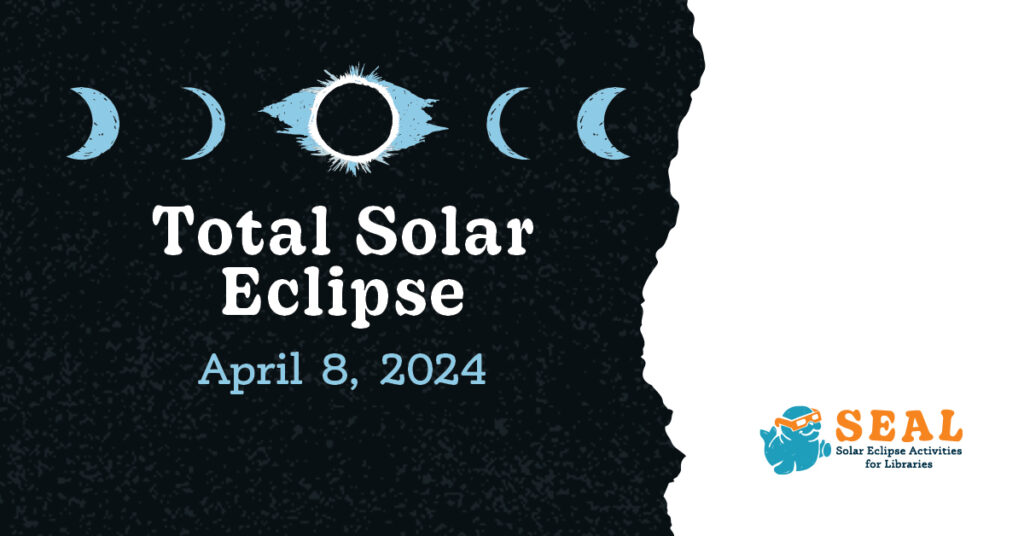Game Time
Come in to the Albert L. Scott Library during Spring Break (March 25-29) to check out some books, play a game, and get sports-themed prizes.
Shamrock Family Fun Run
If shenanigans and malarkey are your thing, don’t miss the Shamrock Family Fun Run to support the Albert L. Scott Library! Lace up your sneakers, and don your best Irish attire. Come run, walk, or dance your way across the finish line at this family friendly event. Don’t want to try your luck alone? Create a team of six or more for a fun day out with friends! Four-legged friends are welcome, but please follow park rules and leash your pet. This is a 1.5k fun run or walk (not a race) that will have lots of stops along the way including color blasts, snacks, and games! Check in begins at 8:30 a.m., and the event starts at 9 a.m. at Patriots Park. The fun run benefits the Library Building Fund.
Please register on LibCal: https://cityofalabaster.libcal.com/event/11853198

Late Summer Maker Camp for Teens—Applications open in April
Tinkers, crafters, and DIY enthusiasts come to our Maker Camp this August! This is a three-day, hands-on camp for students 13-18. You’ll learn to create your own 3D designs and personalize your own item with our laser cutter. Other activities include button making, needle felting, and lino block cutting for printing. Applications will open in April on the library’s website. Class size is very limited, so complete your application early.

Viewing the Total Solar Eclipse
On April 8th there will be a total solar eclipse partially visible in Alabama spanning from 12:30 p.m. to 3:30 p.m. The full eclipse may be viewed from NASA’s website at https://science.nasa.gov/eclipses/future-eclipses/eclipse-2024/. In advance of this celestial event, the Albert L Scott Library will be having three programs explaining the science behind the eclipse: Science Saturday, March 16th at 10:30 a.m., Solar Science on April 3rd at 4 p.m., and Homeschool Happening, April 8th at 10 a.m. Please note that it is not safe to look directly at the Sun without specialized eye protection for solar viewing. Patrons who attend any of these programs will receive a pair of Solar Eclipse glasses. Glasses will also be available for pick up at the circulation desk from March 15th to April 8th while supplies last.

Friends of the Library Spring Book Sale – April 26-28
Friend’s members preview sale on Friday night 5-7 p.m. Public sale on Saturday 9-3 p.m. Fill-a-bag day on Sunday 1-3 p.m.

Fraud Prevention
Come learn how to protect yourself against cyber-attacks and hackers, and learn some fraud prevention techniques at the Albert L Scott Library Sunday, March 17 at 2 p.m. with retired cyber security federal agent Dave Morrow.
Are you safe from the internet?
A Q&A with retired federal agent Dave Morrow
Dave Morrow was a Federal Agent with the Air Force Office of Special Investigations (AFOSI). He retired as the head of the AF cyber investigations team in 1998 and spent the next 25 years in the private sector doing cyber investigations and incident response. He then retired again in 2014 and started volunteering with AARP and others to help victims of cybercrime. The Albert L Scott library is delighted to have agent Morrow come speak on Sunday, March 17th about ways we as citizens can protect ourselves from the growing threat of online attacks. Even the most diligent of us have been tricked into giving away personal information and our hard earned money. In advance of agent Morrow’s visit we asked him a few questions about his background and what we can expect to learn?

It seems like when you started there may not even have been an internet? What did cyber security mean back then and how did you get involved in this fascinating field?
“I first got interested in cyber security back in the mid 70s when I was a young Airman in the Air Force. The internet was barely in its infancy and was mainly a place for academics and engineers. Back then cyber security was mainly the concern of the government trying to keep spies from tapping the computer lines or getting physical access to their systems. Companies rarely thought about the security of the information in their computer systems and, of course, the average consumer didn’t have a home computer or a home network.”
How has your role evolved over the years?
“Before I was an agent, I was a programmer and operator on huge mainframe computers that took up entire rooms. About the time I was recruited to become a cyber crime investigator in the early 80‘s, personal computers were getting popular, and the internet was slowly developing. As a cyber investigator in the early days, there weren’t too many hackers or scammers but when the Internet and personal computers exploded, we had to learn how to find and secure digital evidence and work out how that could be used in all sorts of criminal investigations. Defense computer networks have always been a tempting target for hackers and others, so we learned how to identify and catch them, as well as understand how criminals could use computers to make their existing scams more efficient and pay off better. Current cyber investigators now have to have a thorough technical background in networking, data storage and cutting edge technologies like artificial intelligence. It’s changed unbelievably.”
Can you tell us one story about a cyber-attack that you were involved in and how it was resolved?
“In early 1998 various government agencies detected a series of cyber intrusions and attempted intrusions into a number of Air Force, Navy, Army and other DoD networks that appeared to come from the Middle East. The case was code-named SOLAR SUNRISE. All this occurred at a time of great international tensions over Iraq’s nuclear program and there was a lot of fear that this was a cyber attack from Iraq or one of their allies. Although all the systems accessed were unclassified, an intrusion could greatly endanger a variety of military operations. Numerous DoD investigative organizations came together with the FBI to form a task force to identify the hackers and determine the damage. Over a three-week period, we were able to determine that the hackers were actually three young men, two in California and one in Israel, who were trying to see what they could find in a very tempting set of networks. They were basically learning and practicing their hacking skills on DoD systems. While they received minimal official punishment, the SOLAR SUNRISE case served as a huge wake-up call to the potential impacts of hacking, especially on DoD and other sensitive systems.”
Where were you stationed while in the Air Force?
“I was stationed at Maxwell AFB in Montgomery twice, in California, Washington, D.C twice, San Antonio and in England.”
Can you share any of the companies you worked for after you left the Air Force and generally what you might have done for them?
“I was the head of physical and cyber security for a global IT services firm, head of cyber security for an international credit card processing firm and head of cyber incident response and investigations for a national bank. I also was a cyber security consultant for companies and ran my own consulting firm for several years specializing in advising companies how to respond to and prevent cyber incidents.”
Briefly, what are some of the things we can expect to learn when you come visit the library?
“Since I retired, I’ve been volunteering for AARP as part of their Fraud Watch Network, which offers advice and education on how anyone (not just seniors) can avoid becoming a victim of scammers, especially those pesky ones online. We’ll talk about some of the more prevalent scams currently and talk about steps you need to take to recognize when you’re contacted by a scammer and how protect yourself from them. We’ll also talk about some of the common tactics scammers use to manipulate potential victim’s emotions to do what the scammer wants and tools to help protect yourself.”
Are we more in danger now more than ever from exploitation online?
“Scammers have been around since antiquity, but I think a given individual is exposed to more scammers in an average day now than they would have been in a month 10 or 20 years ago. Globally, something like 85% of people now have smartphones, which are really just small but extremely powerful computers, so more people are exposed as potential targets for scammers and can lose more if they are victimized. Not only is our exposure greater but scammers are also continually using automated tools to improve their techniques to trick victims. Scammers are also very good at using the Internet to cover their tracks and avoid getting caught.”
What is the most recent scams you are seeing?
“I volunteer 2 or 3 times a week helping victims on our Fraud Watch victim assistance line (877-908-3360), and we continually see victims of Romance Scams, phony Government grants, scammers impersonating businesses or government officials to get access to victim’s computers or personal information and identity theft. Scammers are opportunists and they’ll take advantage of current events, holidays, etc. to try to trick potential victims. For example, we see a lot more online shopping fraud around Christmas, romance scams pick up around Valentine’s Day, and fake charity scams rise following a major disaster, like the conflict in Gaza, the fires in Hawaii, or a destructive storm.”
Is there one thing that we can do that’s more important than anything else to stay safe or is it a variety of things?
“There is no silver bullet thing you can to do protect yourself. It takes a combination of knowing how scammers work, being able to recognize a suspicious situation, good cyber habits like using strong passwords, keeping your applications updated and using an anti-malware program, and being aware of resources available if you become a victim or are think you have. One thing I always tell people is that most of us have that little voice in our heads that tell us when something isn’t right in a given situation. They need to listen to that little voice! I talk to victims all the time who tell me that they knew something was wrong during their interaction with a scammer but went ahead and gave in to a scammer’s demands. If it feels like something’s wrong, it probably is.”
If we click on something and realize we should not have what should we do?
“Disengage immediately! If it’s a scam caller, hang up! If it’s a text or email you opened and realize it’s a scam, delete it immediately! Don’t try to engage the scammer to gather evidence, waste their time or anything else. Remember, as long as you engage the scammer in conversation or text/email exchanges, they will try various tricks to get you to give them money or personal information or whatever their goal may be. Knowing what common “red flags” are will help you recognize dangerous situations. One of the biggest flags is that if ANYONE demands you pay for something using a gift card like you get at a store or demands you take money out of the bank and pay using cryptocurrency, it’s a definite scam! Scammers use both of these methods to get their victims to transfer money to them because it’s both instantaneous, very hard to track and rarely results in the victim getting any money back. People of all ages can call us at the AARP Fraud Watch victim assistance line (877-908-3360) for free help and advice if they’re a victim or are uncertain if they’re at risk or not.”
What are some of the common red flags for scams?
“Every type of scam has some specific indicators in addition to common ones like demanding payment with gift cards or cryptocurrency. Many try to create a false sense of urgency, like a stranger claiming to be from the government or a company like Microsoft saying they have urgent and critical information like a missed delivery, a malware infection, a warrant or legal paperwork that has to be dealt with right now. Romance scammers will spend time developing a “relationship” online with a victim using some made-up story, but sooner or later ask for money. If they are successful, the requests for more money keep coming until the victim realizes it’s a scam and stops it. Sadly, some romance scam victims virtually bankrupt themselves before that happens.”
Is the threat from cyber-attack coming from one or two countries or all over the world?
“All over the world really, but currently many come from North Korea, Iran, Russia, Central Africa and South America. That said, we have a lot of scams that originate right here in the US.”
Is Apple safer than computers like Dell or PC platforms?
“While it used to be true that Apple computers were arguably more secure because of the lack of a widespread user base compared to Windows systems, now they both have a wide range of threats that users need to be aware of and take action to combat. I’m comfortable using both and have both, but I also have a lot of security tools running on each and on my home network.”
What type anti-virus do you use?
“I use several on each of my computers at home. For the average person, the antivirus that comes free with Windows is a good start, as long as it’s turned on and frequently updated. I run several additional ones because no single antivirus can catch 100% of all malware. Having several in use gives you multiple layers of scanning and probably protects better than relying on a single tool.:
What else could I have asked that would be helpful to know?
“Just that scammers are not some sort of evil geniuses and they can be defeated. Each of us as individuals are responsible for taking steps to educate and protect ourselves. Fraud, especially cyber fraud, will always be with us in the future at some level, so it’s up to us to do the best we can to slow it down and hold the scammers responsible.”
Dave Morrow offers cyber fraud presentations for church groups, civic clubs, or any other group. Contact him at davebmorrow@gmail.com

